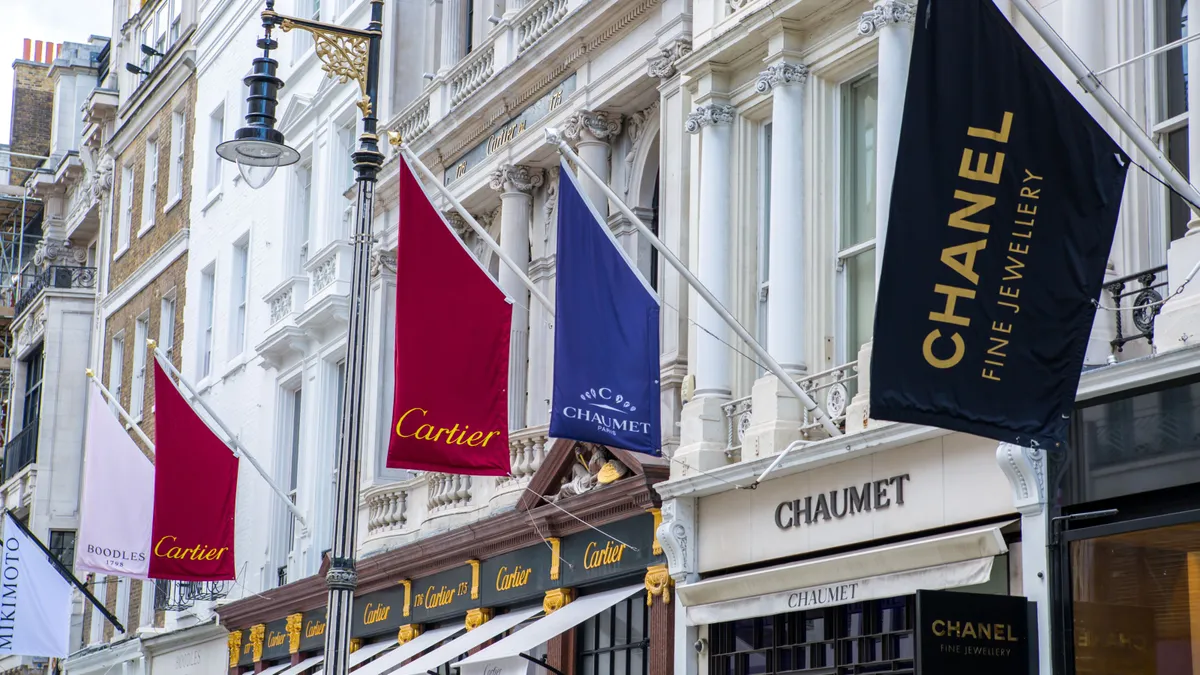Dive Brief:
- Economic uncertainty, global unrest and shifting cultural trends and attitudes are weighing on the luxury sector and putting pressure on brands, according to a new report from Bain & Company and Italian luxury goods industry association Altagamma.
- The personal luxury goods segment contracted 1% last year, and Q1 sales for 2025 are expected to have seen a slide between 1% and 3%, per the report. Under what Bain expects to be the most likely scenario for the months ahead, the sector will contract 2% to 5% in 2025.
- To combat the declines, Bain recommends that luxury goods marketers refocus on business fundamentals, grounding value propositions in clear and differentiated brand identities and shaping a precise and unique positioning that aligns with their customers’ desires.
Dive Insight:
While luxury spending has always been sensitive to outside market factors and economic uncertainty, the sector’s issues are being exacerbated in the present by cultural disillusionment. This shift is most notable in Gen Z, who are questioning the sector’s price-to-value proposition and their relationship with luxury.
The report also points to how shifting preferences within luxury subsectors are impacting growth. While spending on personal luxuries slowed in the first quarter and demand for fine wines and spirits stagnated, luxury hospitality spending remained robust, reflecting consumers’ desire to spend more on experiences rather than things.
Across demographics, overall engagement with luxury brands has declined since 2022. The research shows brand-related searches are down for more than 40% of brands, social media follower growth has fallen 90% and engagement rates off by 40%. Bain attributed the drop-offs to price fatigue and stagnant creativity, leading brands to respond with new experiential formats, category diversification and “beyond product” experiences.
Shifting attitudes toward luxury have created an opening for newer, more agile and culturally relevant brands to make inroads with consumers by blending authenticity with modern strategy and creativity, per the report.
“As the industry faces an increasingly complex global landscape, luxury brands are entering a pivotal new chapter – one that demands sharper focus, greater cultural relevance, and growth rooted in purpose,” said Federica Levato, Bain & Company senior partner and leader of the firm’s Fashion & Luxury practice in EMEA, in a release.
While marketers across sectors are striving to make culture a central part of brand strategy and planning as they look to modernize their products, defining culture isn’t always easy.
“At the heart of this shift lies a more fundamental question: who are we as a brand, and what do we stand for?,” said Levato, in a statement. “Answering this with clarity and conviction will be critical for any brand aiming not just to endure, but to lead in this new era of transformation.”













